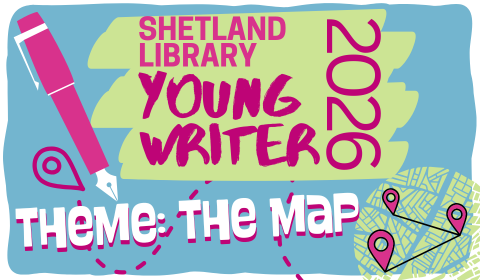Viewpoint / More than a game: how Shetland plays on the world stage
This past week, a familiar buzz of excitement and friendly rivalry filled the North Atlantic as the 20th International Island Games kicked off in a sun-drenched, neighbouring Orkney, writes Dr Andrew Jennings.
By all accounts, Orkney proved to be a splendid host for the thousands of visiting athletes, officials, and supporters, putting on a week of high-quality sport and unforgettable experiences that I’m sure will be remembered for years to come.
The Orkney home team also put on a brilliant performance, securing a fantastic 31 medals and finishing sixth in the table, giving them some friendly inter-county bragging rights!
For team Shetland, it was the closest thing to a home game they could get, and the islands’ athletes closed out the competition with an impressive 17 medals, one gold, nine silver, and seven bronze.
From the silver success of the women’s triathlon and 4x100m relay teams to the gold in mountain biking, the event was a showcase of Shetland’s sporting talent. Among those performances was a gutsy bronze medal run from young Layla Todd, the daughter of good friends, in the women’s 5,000m. It’s these individual stories of dedication and success that bring the games to life for so many!
But the island games, affectionately known as the ‘Friendly Games’, are about much more than the medal table.
For Shetland and the 23 other island groups that participate, from the Faroes to the Falklands, Greenland to Gibraltar, this biennial event is a powerful expression of a distinct identity on the world stage.
It’s a chance to compete under their own flag and connect with other islanders who understand the unique challenges and fierce pride that come with living surrounded by the sea. Each games also has its own anthem. This year Orkney’s was the rousing The Grand Green Isles. Look it up on YouTube!
In case you were unaware, the Island Games are a form of “paradiplomacy”, which is the way non-sovereign territories conduct their own foreign relations.
A week of friendly rivalry
While every island celebrated personal bests and hard-won victories, some teams stood out for their exceptional performances. The Faroe Islands topped the medal table with an impressive 41 gold medals, continuing their tradition of sporting excellence.
The Channel Islands also demonstrated their strength, with Jersey securing second place with 75 medals and Guernsey finishing a hard-fought third with 59.
Individual brilliance was on display throughout the week. Jersey’s 17-year-old swimmer Filip Nowacki was a star of the games, breaking six individual island games records on his way to an 11-medal haul.
Guernsey swimmer Chloe Bown was equally dominant, taking home seven gold medals. The Isle of Man finished fourth with 80 medals, powered by record-breaking performances in athletics, while the Cayman Islands secured a remarkable fifth place with 37 medals, including an incredible 11 won by gymnast Karthik Adapa.
But the spirit of the games isn’t just about the top of the medal table. Perhaps no team embodied this more than the Falkland Islands.
Travelling over 8,200 miles to compete, their 35-strong delegation was a testament to the dedication small island communities have for the event. And their journey was rewarded. The team brought home five medals, including a brilliant gold for archer William Chater.
Beyond the medals, the Falklands’ swimmers made their own mark, smashing ten national records in the pool. It was a performance that brought immense pride to their community back in the South Atlantic, showcasing their talent on the international stage.
The ‘island nations’ club
The list of participants in the island games is a unique political constellation. The 24 member islands are non-sovereign territories of European nations, creating a global family that stretches from Scandinavia to the Mediterranean and from the North Atlantic to the Caribbean.
Membership is diverse, including:
- Crown Dependencies of the UK: The Isle of Man, Jersey, and Guernsey (along with Alderney and Sark).
- British Overseas Territories: Such as Bermuda, the Cayman Islands, the Falkland Islands, and Gibraltar.
- Autonomous Territories: Like the Faroe Islands and Greenland (Denmark), and Åland (Finland).
- Counties and Municipalities: Including Gotland (Sweden) and the Norwegian islands of Frøya and Hitra.
- Other UK jurisdictions: Such as the Isle of Wight, Ynys Môn (Anglesey), and the Scottish island groups of Shetland, Orkney and the Western Isles.
To keep the focus on small communities, the International Island Games Association (IIGA) constitution limits membership to island territories with a population of less than 125,000.
Prospective members must also have local governing bodies for at least two of the sports on the games programme. Gibraltar is the only member that is not an island, but a peninsula. This unique mix allows for a forum where territories with vastly different constitutional arrangements can meet and compete as equals.
Expressing identity
To understand why the island games matter to islands like Shetland, you have to understand Shetland itself. It’s an event where its unique identity can be fully expressed.
It is a forum where Shetland isn’t just a Scottish council area, but a community, a mini-nation, among equals, competing on its own terms. The games allow Shetlanders to forge relationships and practice a form of diplomacy outside the formal channels of the Scottish or UK governments.
This spirit is something I’ve discussed many times with my good friend Jörgen Pettersson, the long-serving chairman of the International Island Games Association from Åland, and now spe§aker of the Åland parliament each year, he speaks to my students, who are taking the Institute for Northern Studies Island Studies masters degree, and he always emphasises that his vision for the IIGA is for it to be a “uniting factor between sporting islands,” helping to develop all its members through friendly competition.
It’s this ethos that elevates the games from a simple sports meet to a powerful tool for connection.
The spirit of Shetland 2005
Shetland has been a proud participant in every island games since the very first one in the Isle of Man in 1985. But the islands’ crowning moment came in 2005, when, with a population of just 23,000, they became the smallest island group to ever host the event.
The logistical challenges were immense, with limited hotel space, the organisers creatively brought in two cruise liners to act as floating hotels. Yet, the event was an overwhelming success.
Bob Kerr, the general manager of the home team, recalled the incredible “unity of the Shetland community,” where for one week, thousands of locals put aside daily frustrations to get behind the games.
The legacy was profound, inspiring a generation of athletes and proving that even the smallest communities can deliver major events on the world stage.
That week culminated in a moment of pure sporting magic when the Shetland men’s football team, considered an underdog, defeated the reigning champions Guernsey 2-0 in the final in front of a roaring home crowd of 6,000 people.
It was more than a football match; it was a powerful assertion of what Shetland could achieve. When they hosted, team Shetland brought home an incredible 46 medals, 10 gold. Well done Orkney on surpassing this with your amazing 11 golds this year!
The price of pride
Of course, this ambition doesn’t come cheap. Beyond the celebratory headlines, there is a constant, pragmatic debate in Shetland, as in the other islands, about the cost and value of these international ventures.
The travel expenses for athletes from a remote archipelago are disproportionately high, creating a significant financial barrier to participation.
This tension came to a head in 2017, when the Shetland Islands Council debated an 11th-hour funding request from the Shetland Island Games Association (SIGA). Councillors were torn between the desire to support the islands’ ‘ambassadors’ and concerns over “reputational damage” from unbudgeted spending, especially when other community funding had been cut.
One councillor argued that the council is “not very good at projecting Shetland’s image… abroad,” highlighting the perceived value of the games, while others pointed out the lateness of the request.
The debate perfectly captures the dual reaction of islanders: immense pride in their athletes and a hard-nosed realism about the cost. It’s a conversation that happens across the participating islands, forcing communities to weigh the intangible benefits of soft power and community spirit against the hard numbers of a council budget.
Forging a path in the world
Ultimately, for Shetland, the value of the island games extends far beyond the week of competition. It is a high point in the sporting calendar that strengthens cultural identity, provides a focus for young people, and builds a robust network with other island communities facing similar challenges.
In a world where small, non-sovereign places can feel overlooked, the games provide a vital platform. They allow Shetland to step into the international arena, not as a periphery of Scotland or the UK, but as a proud, distinct, and capable island community in its own right.
And that, for many Shetlanders, is a prize worth more than gold.
Dr Andrew Jennings is an associate professor in island studies at UHI Shetland. He describes himself as an academic living in Shetland with an interest in islands, history and culture.


































































